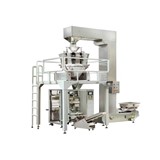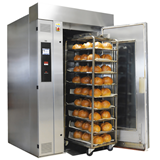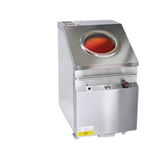If you are in the restaurant business or operate a commercial kitchen, having a pizza oven is likely an essential part of your culinary operations. Commercial pizza ovens are workhorses in the food industry, churning out delicious pizzas day in and day out. To ensure the longevity and efficiency of your pizza oven, regular cleaning and maintenance are crucial. In this comprehensive guide, we will cover the best practices for maintaining and cleaning commercial pizza ovens, helping you optimize their performance and comply with hygiene standards.
Regular Cleaning and Maintenance Schedule
A well-structured cleaning and maintenance schedule are the backbone of keeping your commercial pizza oven in top condition. It's essential to establish a routine that fits your kitchen's usage and the specific type of pizza oven you have. Daily, weekly, and monthly tasks should be assigned to different members of your kitchen staff.
# Daily Cleaning Tasks
Wipe Down Surfaces: Every day, after the oven has cooled down, wipe down the interior surfaces with a damp cloth to remove any food debris or spills.
Clean Oven Exterior: Don't forget the exterior! Keep the outside of the oven clean and free from grease and dirt.
# Weekly Cleaning Tasks
Remove and Clean Oven Stones or Conveyor Belts: Take out oven stones or conveyor belts and scrub them with warm soapy water. This will remove any burnt-on residue and ensure even cooking.
Clean Oven Racks and Trays: Remove and clean the oven racks and trays, either by hand or in a dishwasher.
# Monthly Cleaning Tasks
Deep Clean Interior: Once a month, give your oven a thorough cleaning. This includes removing and cleaning all removable parts, such as burners, stones, or belts. Use a commercial oven cleaner to tackle stubborn stains.
Inspect Gas Lines (for Gas Ovens): If you have a gas-powered pizza oven, have a professional inspect the gas lines regularly to ensure there are no leaks.
Proper Care for Oven Stones or Conveyor Belts
The oven stones or conveyor belts are essential components of your commercial pizza oven. Proper care and maintenance are vital to ensure consistent and even cooking of your pizzas.
Regular Inspection: Check the stones or belts for signs of wear and tear regularly. Replace them promptly if they are damaged or excessively worn.
Seasoning: Seasoning the oven stones can enhance their non-stick properties and prevent dough from sticking. To season, lightly brush the stones with olive oil and heat them for an hour at a low temperature.
Use Baking Sheets or Parchment: To protect the stones or belts from direct contact with food and prevent excessive soiling, consider using baking sheets or parchment paper.
Cleaning Burners and Heating Elements
Efficient burners and heating elements are crucial for achieving the desired cooking temperatures in your pizza oven. Regular cleaning will ensure they function optimally.
Turn Off and Cool Down: Always turn off the gas supply and allow the oven to cool down before attempting any cleaning.
Remove and Clean Burners: Remove the burners and clean them gently with a soft brush to remove debris and dust.
Check for Blockages: Inspect the burners for any blockages that may hinder the gas flow. Clear any obstructions carefully.
Removing Ash and Residues (for Wood-Fired Ovens)
If you use a traditional wood-fired pizza oven, removing ash and residues is a critical part of its maintenance.
Sweeping Out Ash: After the oven cools down, sweep out the ash and residual wood particles. Dispose of them properly.
Cleaning with Damp Cloth: Use a damp cloth to clean the interior walls and floor of the oven. Avoid using water excessively, as wood-fired ovens are not designed to be wet.
Lubrication and Maintenance of Moving Parts (for Conveyor Ovens)
For conveyor ovens, smooth movement is vital for even cooking and preventing breakdowns.
Lubricate Moving Parts: Apply food-grade lubricant to the conveyor belt and other moving parts as recommended by the manufacturer.
Check for Wear and Tear: Regularly inspect the conveyor belt for signs of wear and tear. Replace it if it shows significant damage.
Inspection and Replacement of Components
Apart from routine cleaning, periodic inspection and replacement of key components are essential for long-term performance.
- Professional Inspection: Have a qualified technician inspect your commercial pizza oven at least once a year. They can identify potential issues early on and recommend necessary repairs.
- Replace Worn Parts: If the technician identifies any worn-out or damaged parts, make sure to replace them promptly to avoid more extensive problems.
Ensuring Compliance with Hygiene Standards
In a commercial kitchen, maintaining hygiene standards is non-negotiable. Proper cleaning and maintenance of your pizza oven play a significant role in ensuring food safety and compliance.
- HACCP Principles: Familiarize yourself and your staff with Hazard Analysis and Critical Control Points (HACCP) principles. Implement them in your cleaning and maintenance routines.
- Sanitizers and Disinfectants: Use food-safe sanitizers and disinfectants to clean the oven and surrounding areas.
- Train Your Staff: Provide proper training to your kitchen staff regarding the importance of hygiene and correct cleaning procedures.
Optimizing Energy Efficiency
Apart from cleanliness and compliance, optimizing energy efficiency can save you money and reduce your carbon footprint.
- Sealing Gaskets: Check and replace any worn-out sealing gaskets on the oven door. Proper seals will prevent heat loss and reduce energy consumption.
- Preheating Wisely: Preheating your pizza oven is essential, but avoid doing it excessively. Preheat only as much as needed to save energy.
- Batch Cooking: If possible, batch cook pizzas to maximize the oven's capacity and reduce the number of times you need to reheat it.
Dealing with Tough Stains and Odors
Occasionally, your pizza oven might encounter stubborn stains and unpleasant odors. Here's how to deal with them effectively.
- Baking Soda Paste: Create a paste using baking soda and water, then apply it to tough stains. Let it sit for a few hours before scrubbing it away.
- Citrus Peel for Odors: To combat lingering odors, place citrus peels inside the oven and heat it slightly. The natural oils in citrus will help freshen the oven's interior.
Safety Measures
Safety should always be a top priority in a commercial kitchen, and your pizza oven is no exception.
- Safety Gear: Provide your staff with proper safety gear, such as heat-resistant gloves, to protect them from burns during cleaning and maintenance.
- Gas Leak Detection: If you have a gas-powered oven, invest in gas leak detection equipment to ensure safety and prevent accidents.
Record Keeping and Documentation
Maintaining records of cleaning and maintenance tasks is crucial for accountability and compliance.
- Maintenance Log: Keep a detailed log of all cleaning and maintenance activities, including dates and tasks performed.
- Manufacturer's Guidelines: Refer to the manufacturer's guidelines and warranty terms for recommended maintenance procedures and frequencies.
Regular Training and Staff Education
Ensuring that your kitchen staff is well-trained and educated in the proper use and maintenance of the pizza oven is key to its longevity and performance.
- Hands-on Training: Offer hands-on training sessions for your staff to familiarize themselves with the pizza oven's operation, cleaning, and maintenance procedures.
- Educational Materials: Provide your staff with educational materials, such as manuals and guides, to reinforce their knowledge.
- Periodic Refreshers: Conduct periodic refresher courses to keep your staff up-to-date with the latest best practices in oven maintenance.
Addressing Common Issues
Despite your best efforts, some issues may still arise with your pizza oven. Being prepared to address them promptly is essential.
- Uneven Cooking: If your pizzas are not cooking evenly, check the oven stones or conveyor belts for damage or misalignment. Realign or replace them as necessary.
- Excessive Smoke: In wood-fired ovens, excessive smoke can be caused by burning wet wood. Ensure that your wood is properly seasoned and dried.
- Inconsistent Temperatures: If your oven is struggling to maintain consistent temperatures, check for gas flow issues or faulty heating elements.
Seasonal Maintenance
Different seasons can affect your pizza oven differently, so seasonal maintenance is necessary.
Summer Preparations: Before the busy summer season, conduct a thorough cleaning and inspection to ensure your pizza oven is in top shape.
Winter Precautions: In colder months, insulate your oven to retain heat better and prevent rapid temperature drops.
Benefits of Proper Maintenance
Proper maintenance and cleaning of your commercial pizza oven offer numerous benefits for your business.
- Extended Lifespan: Regular maintenance can significantly extend the life of your pizza oven, saving you money on costly replacements.
- Energy Efficiency: A well-maintained oven operates more efficiently, saving on energy costs and reducing your environmental impact.
- Food Quality: Clean ovens produce better-tasting pizzas, enhancing the reputation of your restaurant.
- Customer Satisfaction: Consistently delicious pizzas result in happier customers, leading to repeat business and positive reviews.
Consulting with Experts
If you're unsure about certain aspects of pizza oven maintenance, consider consulting with experts in the field.
- Manufacturers: Reach out to the oven manufacturer for guidance on specific maintenance procedures and troubleshooting.
- Service Technicians: Establish a relationship with qualified service technicians who specialize in pizza ovens for professional assistance.
Conclusion
Proper maintenance and cleaning of your commercial pizza oven are not only essential for its longevity but also for the quality and safety of the food you serve. Following a regular cleaning schedule, taking care of oven stones or conveyor belts, cleaning burners and heating elements, removing ash from wood-fired ovens, lubricating moving parts, and inspecting components will help you achieve consistent performance and compliance with hygiene standards.
Remember, a well-maintained pizza oven ensures your business runs smoothly, and the delicious pizzas keep coming out of the oven, delighting your customers. So, prioritize the maintenance of your pizza oven, optimize its energy efficiency, and implement safety measures to ensure a successful and safe operation.






-160x160-state_article-rel-cat.png)





-160x160-state_article-rel-cat.png)

-160x160-state_article-rel-cat.png)











